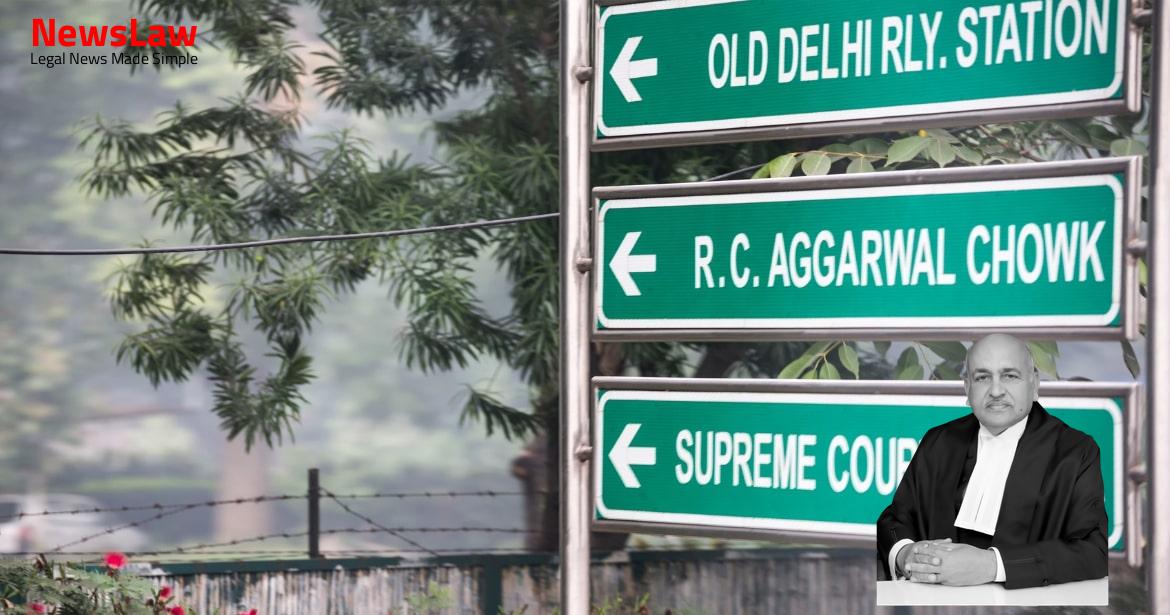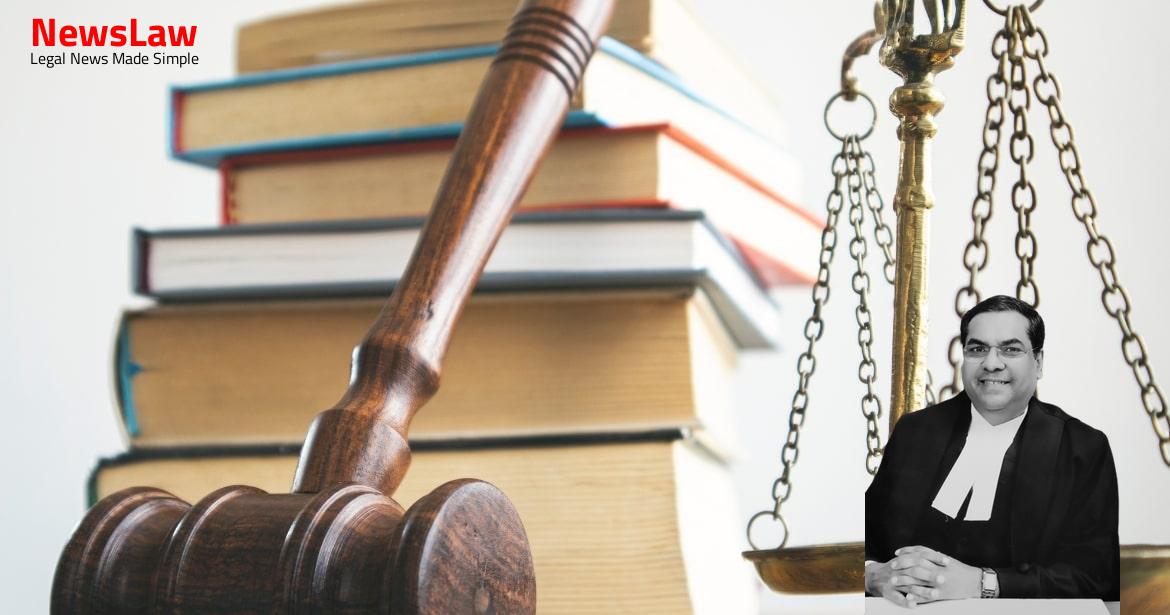In a significant legal decision by the Supreme Court, a dispute over an arbitral award has been settled. The court has restored the original award dated 08.11.2012. This judgment has far-reaching implications in the field of arbitration and alternative dispute resolution. Stay tuned for more insights.
Facts
- The Rice Mill was awarded Rs.2,67,66,804/- by the Arbitrator on 08.11.2012
- The amount was to be paid with interest at 12% per annum
- There was a shortage in quantity of rice costing Rs.7,16,15,716/- recoverable from the Rice Mill
- The Rice Mill filed an appeal under Section 37 of the Act before the High Court
- The High Court allowed the appeal on 10.01.2017 setting aside the earlier judgments and orders
- The Corporation has appealed against the High Court’s decision
- The arguments put forth by RLC were considered during the dismissal on 07.04.2015.
- The finding was that there was no illegality in the award within the permissible scope of interference under Section 34 of the Act.
Also Read: Judgment by the Supreme Court Of India: Upholding the Principles of Natural Justice
Issue
- Scope of powers of the Appellate Court under Section 37 of the Act is the main issue.
- Question is whether the Appellate Court was justified in setting aside the award that had already been confirmed under Section 34 of the Act.
- The object of the Act is to provide for a speedy and inexpensive alternative mode of settlement of disputes with minimum intervention of the courts.
- Section 5 of the Act prohibits interference by the judicial authority with the arbitration proceedings unless provided in Part-I of the Act.
Also Read: Supreme Court Judgment: Disputed Auction Sale of Society’s Property
Analysis
- Section 34 of the Act provides a limited scope of interference with arbitral awards
- Interference or setting aside an award is possible if it conflicts with public policy, involves fraud or corruption, or goes against fundamental Indian law
- Arbitral awards should not be casually or cavalierly interfered with, unless they are fundamentally flawed without any possibility of alternative interpretation
- The court’s power under Section 34 is not like a regular appellate jurisdiction and cannot be exercised casually
- Courts must respect the finality of arbitral awards and party autonomy in choosing alternative dispute resolution mechanisms
- Judicial interference is restricted to Sections 34 and 37 of the Act, with limited grounds for appeal provided in Section 34
- Even when two views are possible, the arbitrator’s decision should generally be accepted and not reappraised by the court
- The court’s power under Section 34 of the Arbitration Act is limited to ascertaining that it has not exceeded the provision’s scope.
- When an arbitral award is confirmed by both the court under Section 34 and in an appeal under Section 37, the Supreme Court must be cautious to disturb such concurrent findings.
- The concept of ‘fundamental policy of Indian law’ includes compliance with statutes, judicial precedents, natural justice principles, and reasonableness.
- The term ‘patent illegality’ encompasses contravention of Indian substantive law, the 1996 Act, and the terms of the contract.
- The intervention of the court in arbitral matters is virtually prohibited, limited only to the extent allowed under Section 34 of the Act.
- The power of the Appellate Court under Section 37 is constrained to ensure the court under Section 34 has acted within its prescribed limits.
- The Appellate Court cannot review the arbitral tribunal’s decision on merits, only step in if the court under Section 34 has failed in its jurisdiction.
- The scope of interference in an appeal under Section 37 is subject to the same grounds as challenging an award under Section 34.
- Interference in awards by arbitrators should be limited, and the courts should not lightly reverse the findings of the arbitral tribunal based on mere alternative views.
- Violation of Indian public policy includes violations of fundamental policy of Indian law, Indian interests, conflict with morality, and existence of patent illegality in the arbitral award.
- The award was rightly upheld by the court under Section 34 of the Act.
- Appellate Court cannot set aside the award without finding any illegality or error under Section 34 of the Act.
- Merely having a different view from the arbitral tribunal is not sufficient to set aside the award.
- The Appellate Court committed a manifest error of law in setting aside the arbitral award.
Also Read: Seniority Dispute: Supreme Court Decision on Industrial Establishment Rules
Decision
- The impugned judgment and order dated 10.01.2017 passed under Section 37 is set aside
- The arbitral award dated 08.11.2012 is restored for implementation in accordance with the law
- The appeal is allowed with no order as to costs
- Pending application(s), if any, shall stand disposed of
Case Title: PUNJAB STATE CIVIL SUPPLIES CORPORATION LTD. Vs. M/S. SANMAN RICE MILLS (2024 INSC 742)
Case Number: C.A. No.-010889-010889 – 2024



